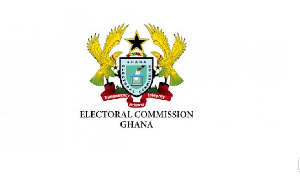Ghana’s democracy, celebrated as a beacon of hope in West Africa, is under siege. The Electoral Commission (EC), led by Jean Mensa, stands accused of turning a blind eye to partisanship and manipulation, threatening the integrity of the electoral process.
With allegations of infiltration by New Patriotic Party (NPP) supporters at all levels-from the national office to constituency branches-the commission is seen as being complicit in tilting the electoral landscape to favor the ruling New Patriotic party.
This article argues that any EC official involved in electoral malpractice should be charged with treason due to the grave consequences of undermining the democratic fabric of the nation.
The Integrity Crisis of Ghana’s Electoral Commission
The EC’s role in ensuring free, fair, and transparent elections is critical to maintaining peace, stability, and democratic governance. However, recent happenings suggest a troubling trend- partisan bias.
The EC has been compromised by partisan interests, particularly from the ruling NPP. Accusations of manipulating the voter register, disenfranchising eligible voters, illegal transfer of registration and enrollment, and favoring NPP strongholds are rampant.
The alignment with the ruling NPP that is bent on hanging onto power despite the strong wind of change in the face of the stark incompetence served to Ghanaians in the last eight years must be of concern to every peace-loving Ghanaian.
The actions and statements of Jean Mensa and her officials have sometimes been perceived as favoring the incumbent administration, leading to a lack of confidence among opposition parties and the electorate. This erosion of trust in the electoral process does not merely undermine individual elections; it risks destabilizing the entire democratic system of Ghana.
Partisanship at the Core: The EC’s Compromise
The credibility of an electoral body lies in its impartiality. When officials within the EC are accused of partisanship, the very foundation of democracy is shaken. Reports of NPP loyalists infiltrating the commission have sparked widespread concern.
Manipulations of the electoral register, selective enforcement of rules, and the failure to address irregularities have created a perception that the EC is not an independent arbiter but rather a tool of the ruling party. Such actions not only undermine public confidence but also raise the specter of electoral violence, as citizens feel their democratic rights are being trampled upon.
Electoral malpractice: A crime against the state
Electoral malpractice is more than just an administrative failure; it is a direct attack on the sovereignty of the people. When an EC official engages in any form of electoral fraud, they are effectively subverting the will of the citizens, which is tantamount to an assault on the state. The stakes are incredibly high: elections determine the leadership, policies, and future direction of the nation. Manipulating this process for partisan gain is not just a crime against individuals or political opponents; it is a crime against the entire country.
Why electoral malpractice should be charged as treason
Treason is defined as acts that betray one’s country, often involving a breach of allegiance or an attempt to subvert the nation’s stability. Electoral malpractice fits this definition perfectly. When EC officials engage in fraud, they are not merely violating election laws; they are betraying the fundamental trust placed in them by the state. By manipulating the electoral process, they are effectively attempting to overthrow the democratic order, which can lead to widespread unrest and the breakdown of societal norms.
Charging electoral malpractice as treason would send a clear and unequivocal message: Ghana will not tolerate any actions that threaten its democratic integrity. This would not only serve as a deterrent to would-be offenders but also restore public confidence in the electoral process. It would reinforce the idea that Ghana’s democracy is sacrosanct and must be protected at all costs.
The broader implications for Ghana’s stability
Electoral fraud does not occur in a vacuum. When citizens lose faith in the electoral process, the likelihood of protests, civil disobedience, and even violent uprisings increases. Ghana, often lauded for its peaceful transitions of power, risks losing its reputation as a stable democracy if these issues are not addressed decisively. The EC must be held to the highest standards of accountability to prevent any descent into chaos.
Conclusion: Defending Ghana’s Democratic Future
The Jean Mensa-led EC is at a crossroads. Its actions, or lack thereof, will determine whether Ghana continues to be a shining example of democracy or becomes another cautionary tale of electoral manipulation and unrest.
To protect Ghana’s future, it is imperative that all forms of electoral malpractice be treated with the utmost seriousness, including categorizing them as acts of treason. Only then can we safeguard the principles of fairness, transparency, and peace that are the bedrock of our democracy. The time to act is now, for the stakes could not be higher.
Opinions of Wednesday, 9 October 2024
Columnist: Cletus Siebune



















